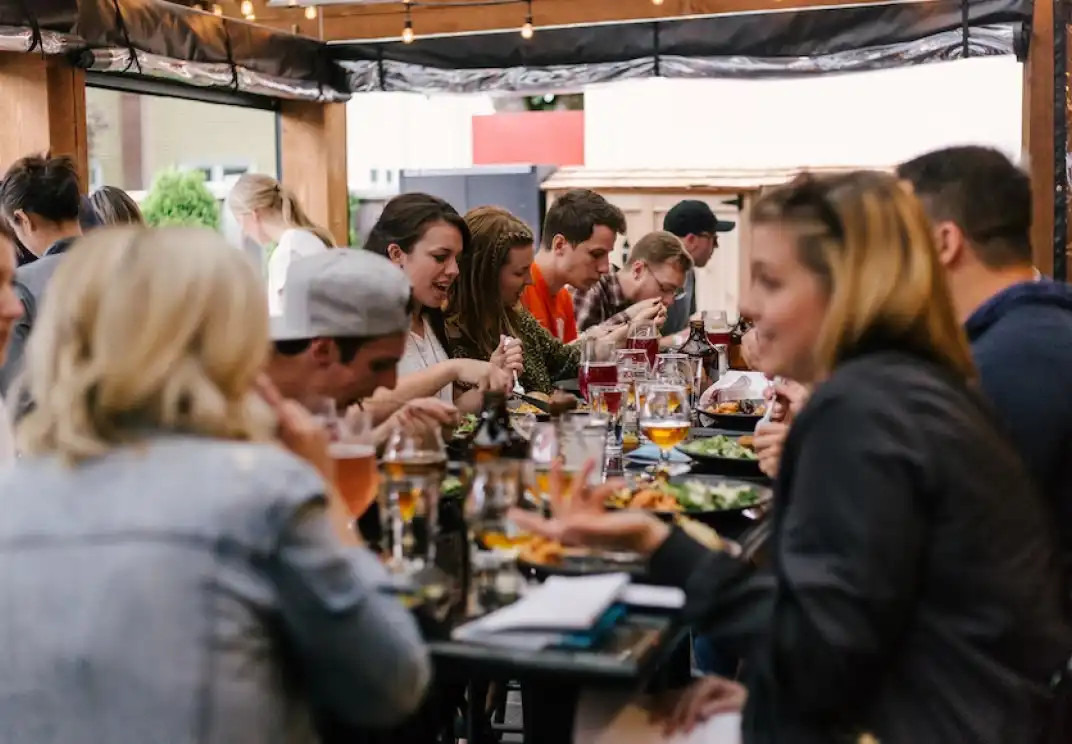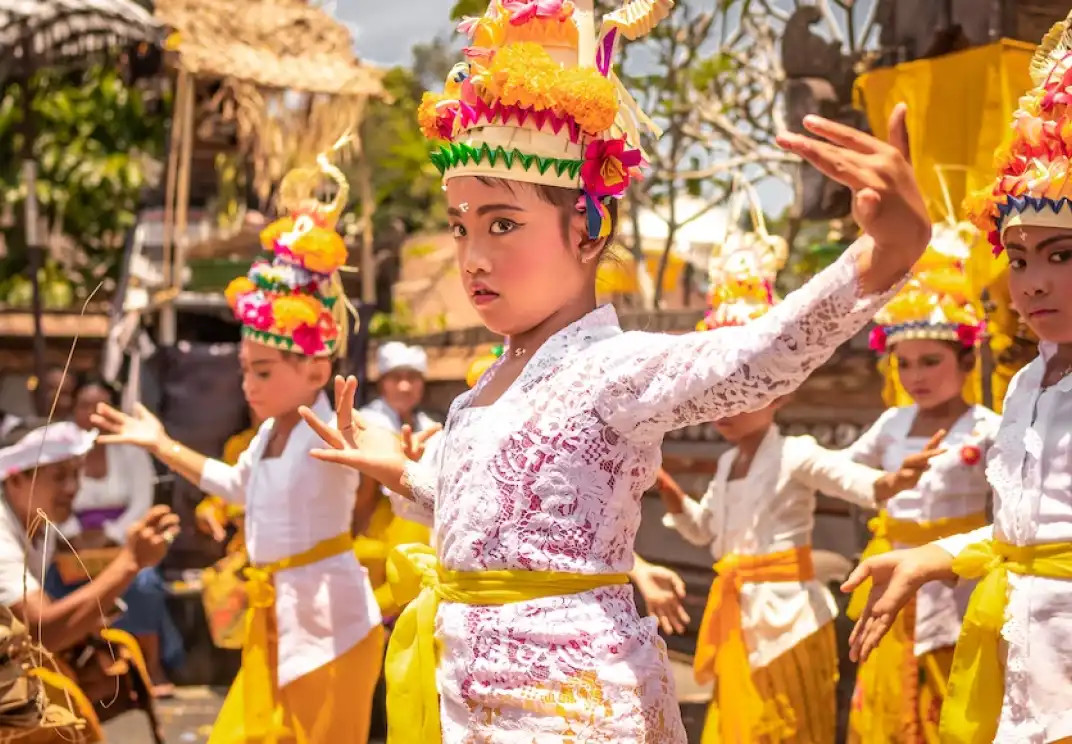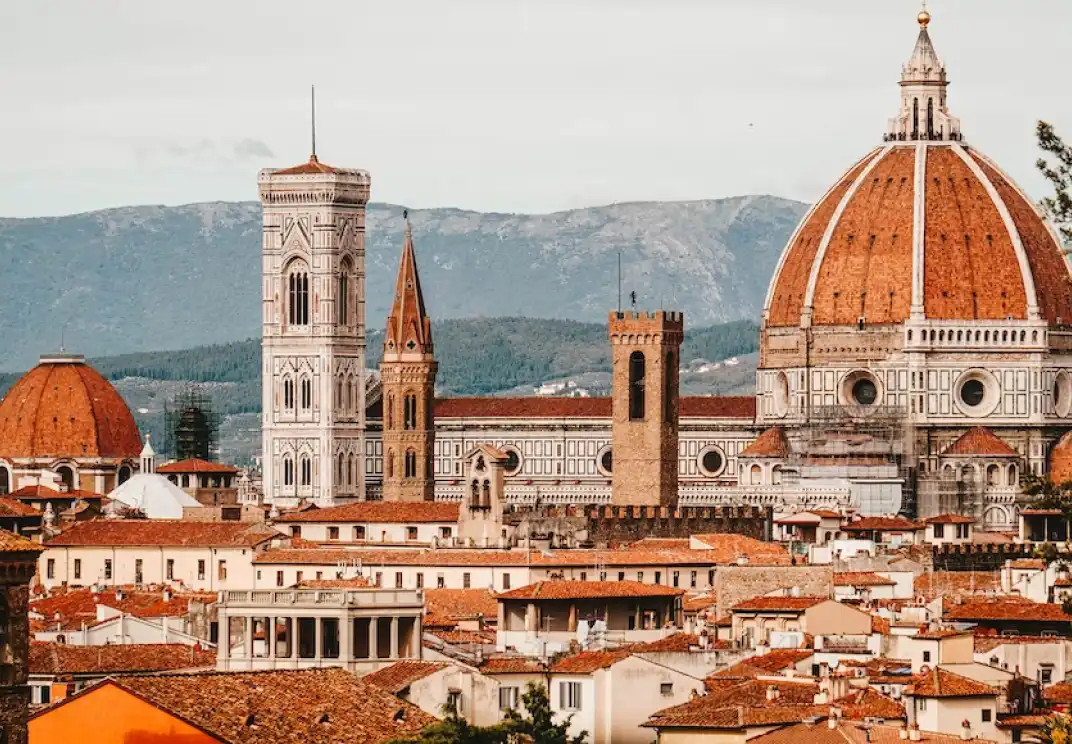Are you curious about What Is Common Interest Tourism? It’s more than just a buzzword; it’s a travel revolution! At SIXT.VN, we’re passionate about connecting you with unique experiences that cater to your specific passions while exploring the beauty of Vietnam. From culinary adventures in Hanoi to exploring historical sites, we’ll guide you through the world of specialized travel. Discover how to plan your next adventure with our travel advisory services, airport transfer options, and hand-picked hotel accommodations. Let’s uncover Vietnam’s hidden gems together, creating unforgettable travel experiences!
1. Unveiling Common Interest Tourism
Common interest tourism, also known as special interest tourism (SIT) or niche tourism, is a form of travel driven by a particular hobby, passion, or interest. It moves beyond generic sightseeing, focusing on immersive experiences that resonate with specific groups of travelers.
 Tourists exploring ancient temples in Southeast Asia
Tourists exploring ancient temples in Southeast Asia
Instead of mass tourism’s broad appeal, common interest tourism caters to specific niches. Think culinary tours for foodies, historical explorations for history buffs, or bird-watching expeditions for nature enthusiasts. These travelers seek authentic experiences and deeper engagement with their chosen interests.
SIXT.VN understands that today’s travelers crave unique and personalized adventures. That’s why we offer tailored experiences that go beyond the typical tourist trail, allowing you to connect with Vietnam in a meaningful way.
2. Key Characteristics of Common Interest Tourism
What sets common interest tourism apart from traditional travel? Here are some defining characteristics:
- Focused Experiences: SIT centers on specific activities, interests, or hobbies. This targeted approach allows travelers to dive deep into their passions.
- Niche Markets: Instead of appealing to the masses, SIT targets specific groups of travelers with shared interests.
- Authenticity: Common interest tourism emphasizes authentic experiences that provide a genuine connection to local culture, history, or environment.
- Specialized Knowledge: Participants often possess a higher level of knowledge and interest in the chosen subject matter.
- Detailed Planning: Successful SIT requires careful planning and itinerary design to meet the specific needs and expectations of participants.
- Sustainability: Many forms of SIT prioritize responsible travel practices that minimize environmental impact and support local communities.
SIXT.VN embraces these characteristics by curating unique itineraries and partnering with local experts to ensure that you enjoy an immersive and authentic experience. Our team is dedicated to providing detailed planning, from airport pickups to hotel bookings, so you can focus on exploring your passions in Vietnam.
3. Why Common Interest Tourism Matters
Common interest tourism offers numerous benefits to both travelers and the tourism industry:
- Enhanced Travel Experiences: SIT provides travelers with richer, more meaningful experiences that align with their passions.
- Economic Benefits: SIT can generate higher revenue for local communities by attracting niche markets and encouraging spending on specialized services and products.
- Cultural Preservation: By promoting interest in local culture and traditions, SIT can contribute to their preservation and promotion.
- Environmental Awareness: Many forms of SIT, such as eco-tourism, raise awareness about environmental issues and promote responsible travel practices.
- Sustainable Development: SIT can support sustainable development by encouraging responsible tourism practices that benefit local communities and minimize environmental impact.
- Year-Round Tourism: SIT can help to extend the tourism season by attracting visitors during off-peak periods for specific events or activities.
According to the Vietnam National Administration of Tourism, SIT is a growing segment within the country’s tourism sector, contributing to the overall economic growth and cultural preservation efforts.
SIXT.VN is committed to supporting the growth of SIT in Vietnam by offering responsible and sustainable travel options. We work with local partners to ensure that your travels contribute to the well-being of the communities you visit.
4. The Surge in Specialist Tourism
Following the COVID-19 pandemic, a renewed appreciation for local and unique experiences has emerged. Travelers are seeking more than just standard vacations; they desire immersive journeys that resonate with their personal interests and values. This shift has fueled the growth of specialist tourism, with more people opting for niche travel experiences.
 Travelers exploring historical ruins
Travelers exploring historical ruins
People now lean toward more sustainable and specialized options to satisfy their travel needs. Tourists are swapping beach trips for specialized painting holidays or adventures across unique destinations. This surge in popularity has propelled the emergence of SIT, as more and more individuals seek unique experiences.
SIXT.VN recognizes this trend and offers specialized services that cater to specific interests. We thoroughly research target audiences, understand their needs and preferences, and design tailored itineraries. Let us help you discover the magic of Vietnam through curated, specialized adventures.
5. Common Interest Tourism Examples: Exploring Diverse Niches
The world of common interest tourism is vast and varied, offering something for every traveler. Here are some compelling examples:
5.1. Health Tourism
Health tourism combines medical treatments with leisure activities, allowing people to receive medical care while exploring a new destination.
 Spa treatment with hot stones and orchids
Spa treatment with hot stones and orchids
It also includes visiting spas, resorts, and wellness centers for relaxation and rejuvenation. Travelers can receive health benefits while exploring a new city or country, making health tourism a popular SIT recommendation for businesses.
5.2. Culinary/Food Tourism
Culinary tourism revolves around food, involving visits to local restaurants, cooking classes, and guided tours of historical sites related to culinary arts. Tourists can also visit farms, markets, and wineries.
 Group of friends enjoying a meal together
Group of friends enjoying a meal together
Culinary tourism allows people to immerse themselves in the local culture and learn about different cuisines, ingredients, and cooking techniques.
5.3. Adventure Tourism
Adventure tourism involves activities such as mountain biking, climbing, rafting, kayaking, and mountaineering. It’s a great way for tourists to explore and experience the great outdoors.
 Hikers climbing a snowy mountain
Hikers climbing a snowy mountain
It also helps to promote sustainable development in local communities, as it encourages the preservation of natural resources and respect for the environment. This is also known as environmental tourism.
5.4. Dark Tourism
Dark tourism involves visiting places associated with death, tragedy, or suffering, such as the Auschwitz concentration camp and the 9/11 Memorial in New York City.
 9/11 Memorial reflecting pool
9/11 Memorial reflecting pool
While controversial for some, it gives visitors insight into the history and culture of a destination and helps to create awareness about dark events that have occurred in the past.
5.5. Spiritual/Religious Tourism
Spiritual or religious tourism is for tourists looking for a meaningful experience, involving visits to holy places and participation in rituals specific to the destination’s culture.
 Traditional Japanese street with a pagoda
Traditional Japanese street with a pagoda
Examples include attending Hindu festivals in India, exploring temples in Cambodia, and touring churches in Europe. Tourists can also take part in meditation retreats and yoga classes for a deeper understanding of the local religion.
5.6. Cultural Tourism
Cultural tourism revolves around exploring the culture, traditions, and customs of certain destinations.
 Balinese dancers in traditional costumes
Balinese dancers in traditional costumes
It can include attending festivals and special events, taking part in cultural workshops, touring historical sites, and visiting museums to learn about different cultures.
5.7. Rural Tourism
Rural tourism offers travelers a unique opportunity to connect with nature, explore picturesque landscapes, and get back in touch with traditional ways of life.
 Person overlooking rice fields in a mountainous landscape
Person overlooking rice fields in a mountainous landscape
It is ideal for people who want to learn more about rural cultures and experience life outside of tourist destinations.
5.8. Wildlife Tourism
Wildlife tourism involves visiting wildlife preserves, zoos, and animal sanctuaries to observe animals in their natural habitat or learn about conservation efforts.
 Giraffe stretching its neck among tree branches
Giraffe stretching its neck among tree branches
This helps promote environmental awareness and generate income for the local economy.
5.9. Sports Tourism
Sports tourism involves activities such as skiing, surfing, and golfing. Tourists can also experience special sports events such as the Olympics or watch professional sporting events in person.
 Olympic rings illuminated at night
Olympic rings illuminated at night
It’s not just about taking part in athletic activities; it’s also an opportunity to explore a destination and learn about its culture and traditions.
5.10. Architourism (or Architectural Tourism)
Architourism involves visiting destinations renowned for their architecture and design.
 Florence Cathedral and cityscape
Florence Cathedral and cityscape
It’s a great way to gain an appreciation of the history and culture behind a destination’s architecture.
5.11. Battlefields Tourism
Battlefields tourism offers travelers a chance to explore the sites of famous wars and battles from around the world.
 Bronze statue of a person wearing a hat
Bronze statue of a person wearing a hat
It’s an interesting and unique way to explore history in a new light.
5.12. Wedding Tourism
Wedding tourism offers couples the chance to get married in a beautiful and romantic location.
 Hands with mehndi and gold jewelry during a wedding ceremony
Hands with mehndi and gold jewelry during a wedding ceremony
It can also include attending special events such as traditional Indian or Chinese weddings. This is a great way to get a deeper understanding of foreign cultures and their wedding ceremonies.
SIXT.VN can help you plan your perfect culinary tour of Hanoi, complete with local guides and authentic dining experiences. Imagine savoring traditional Pho or Banh Mi while learning about the history and culture behind these iconic dishes.
6. In-Depth Research into Special Tourism
For more information, refer to the experts B. Weiler and C. Hall and the Journal of Travel Research! Weiler and Hall explore why people choose holidays based on hobbies. Their findings help us understand what makes these special trips tick and how they’re different from regular holidays.
Meanwhile, the Journal of Travel Research is your go-to place for all things travel and tourism. For businesses and travel buffs, these resources are gold!
Use their insights to create engaging travel experiences that speak directly to travelers’ unique interests and passions. It’s all about crafting journeys that people love because they’re tailored just for them.
7. How to Make Common Interest Tourism Work for You with SIXT.VN
SIXT.VN is your gateway to unlocking the wonders of common interest tourism in Vietnam. Whether you’re a solo traveler, a couple seeking a romantic getaway, a family looking for adventure, or a business traveler with a passion for culture, we have something for you.
Imagine this:
- Effortless Planning: No more struggling with complicated itineraries or unreliable services. SIXT.VN handles all the details, from airport transfers to hotel bookings and tours.
- Authentic Experiences: Our local experts curate experiences that go beyond the tourist traps, allowing you to connect with Vietnam’s culture and heritage on a deeper level.
- Seamless Travel: With our reliable transportation services, you can explore Vietnam with ease and comfort, knowing that you’re in safe hands.
- Personalized Service: Our dedicated team is available to assist you every step of the way, ensuring that your trip is tailored to your specific needs and preferences.
Here’s how SIXT.VN can enhance your common interest tourism experience in Vietnam:
- Tailored Itineraries: We create customized itineraries based on your interests, whether it’s exploring Hanoi’s Old Quarter, trekking through Sapa’s rice terraces, or cruising along Ha Long Bay.
- Airport Transfers: Enjoy a hassle-free arrival and departure with our reliable airport transfer services.
- Hotel Bookings: We offer a wide selection of hotels to suit your budget and preferences, from boutique hotels in Hanoi to luxury resorts in Phu Quoc.
- Guided Tours: Our knowledgeable local guides will take you on immersive tours of Vietnam’s cultural and historical sites.
- Transportation: Explore Vietnam in comfort and style with our private car and driver services.
Contact us today to start planning your dream common interest tourism adventure in Vietnam. Let SIXT.VN be your trusted partner in creating unforgettable travel experiences.
8. FAQs About Common Interest Tourism
8.1. What is the meaning of special interest tourism?
Special interest tourism refers to travel motivated by specific interests or passions of the tourist, rather than traditional tourism destinations. The special interest tourism definition encompasses various niche markets and forms of tourism, including cultural sites, wellness tourism, adventure activities, sports tourism, and eco-tourism. Activities are centered around unique, often specialized interests or customized leisure experiences.
8.2. What is an example of special interest tourism?
Special interest tourism could include culinary tourism, where travelers explore destinations to experience local cuisines and culinary traditions. Other examples include bird-watching tours, wine-tasting trips, and historical exploration, all of which fall under specialized tourism due to their specific focus.
8.3. Is special interest tourism in demand?
Absolutely! Over the past decade, special interest tourism has become a hot trend in the travel world, showing rising demand. More and more travelers want unique experiences. They’re not just visiting a destination; they’re diving deep into what makes that place special.
This isn’t just a passing trend. It’s a growing industry. People are moving away from tourist spots and seeking out activities and experiences that match their personal interests. Think about it: instead of just visiting a city, travelers are now keen on joining recreational activities or learning from local people about their culture and traditions.
Recognizing this shift, many places are stepping up their destination marketing game. They’re offering flexible packages that let tourists truly engage with the local area. It’s not just about seeing sights anymore; it’s about buying experiences that enrich the soul and promote well-being.
The increasing number of travelers wanting more than just a standard vacation is the chief driver behind this boom. They’re after genuine, memorable moments, and special interest tourism delivers just that.
8.4. What are the motivations for special interest tourism?
Motivation for special interest tourism often stems from a desire to delve deeper into particular hobbies or passions. Travelers may seek authentic experiences, knowledge enhancement, social interaction, or even physical wellness. These interests are all catered for by unique activities and destinations related to their interests, such as special interest holidays.
8.5. How do you identify special interests?
Identifying special interests involves exploring and understanding personal preferences, passions, and hobbies. It could be related to activities like hiking, historical exploration, or culinary experiences. These activities can be catered for through specialist tourism offerings, providing in-depth and tailored experiences.
8.6. What are special interest sites?
Special interest sites refer to destinations or platforms that cater to the specific hobbies or passions of a group of people. Special interest tourism sites might include historical landmarks, nature reserves, or culinary hotspots. These sites offer distinctive experiences and cater to particular interests or activities.
8.7. What is the difference between mass tourism and special interest tourism?
While mass tourism typically involves large numbers of people visiting popular destinations for general leisure activities, special interest tourism is characterized by travelers seeking specialized experiences aligned with their specific interests or passions, such as bird-watching or historical exploration, often in small groups.
8.8. What are the five tourist motivations?
The five tourist motivations include:
- Knowledge: Seeking information and education.
- Adventure: Pursuing thrills and excitement.
- Relaxation: Desiring rest and rejuvenation.
- Social Interaction: Wants to engage with others.
- Personal Fulfillment: Seeking self-actualization and accomplishment through travel.
8.9. What motivates tourists?
The main factors that motivate tourists include cultural curiosity, adventure seeking, relaxation, business purposes, and social interaction. In special interest tourism, motivations might also be deeply tied to specific hobbies or passions. For example, exploring specialised tourism examples like culinary or adventure tourism.
8.10. What are the two main roles of a special interest group?
Special interest groups have two main roles: advocacy and representation. These groups actively influence public policy and opinion in favor of their particular interests or causes. They represent the needs and desires of their members, often playing a crucial role in shaping related policies and practices.
Address: 260 Cau Giay, Hanoi, Vietnam
Hotline/Whatsapp: +84 986 244 358
Website: SIXT.VN



